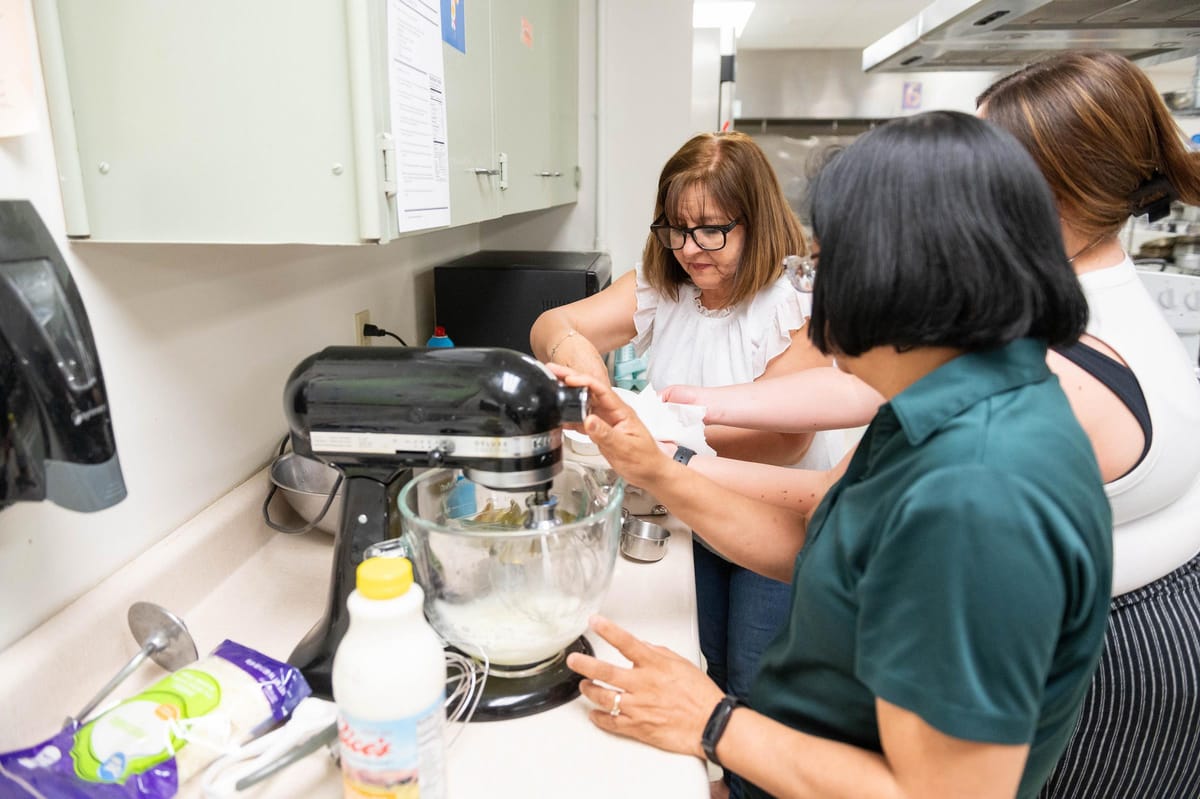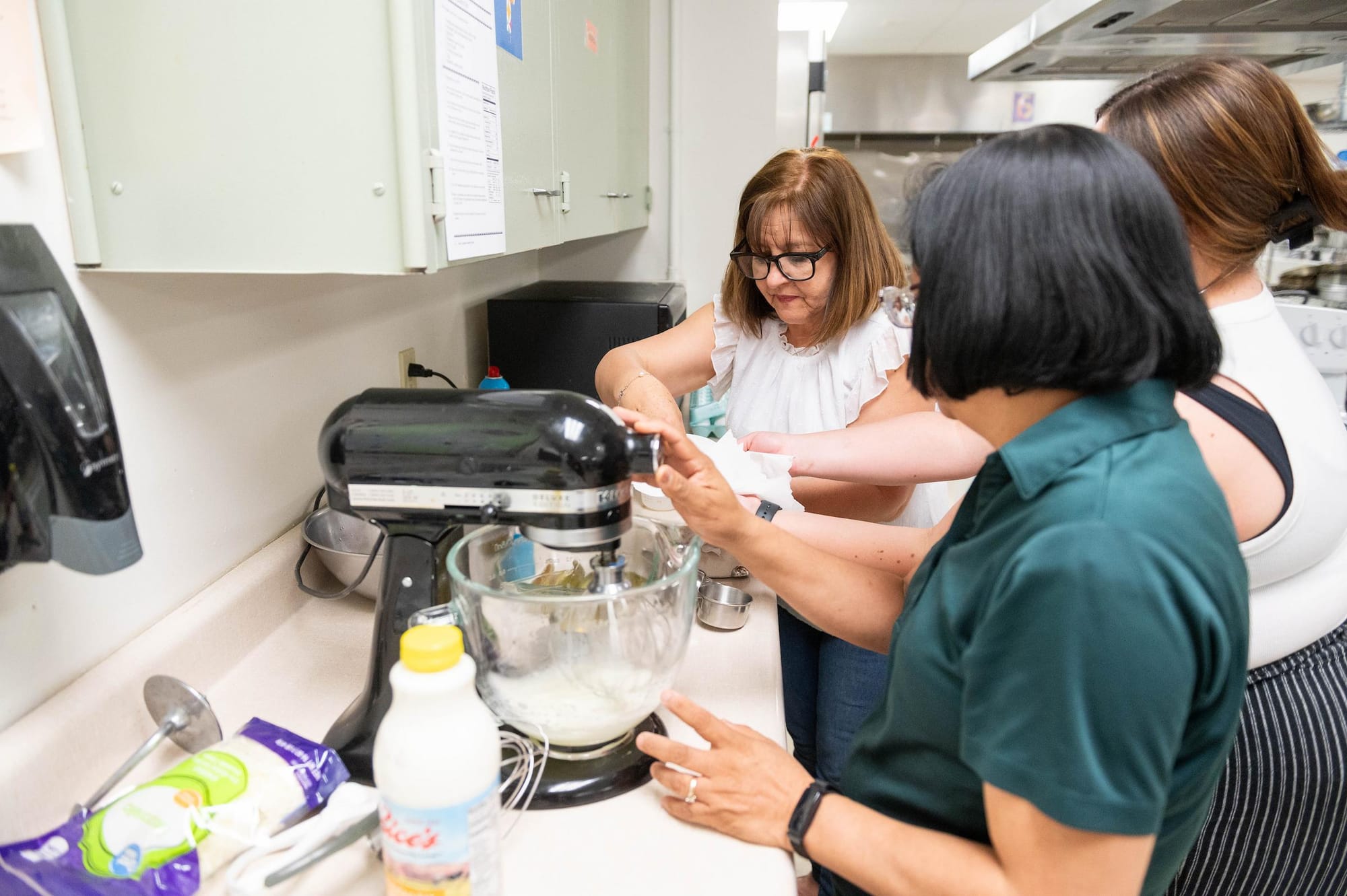Empowering New Mexico: NMSU Extension Family and Consumer Sciences drives statewide impact with $4.5M in grants
Programs tackle diabetes, nutrition, vaccine education and mental health, reaching 21,000 residents and generating $16.4M in economic benefits through targeted community initiatives and workforce development.

Tiffany Acosta, New Mexico State University
LAS CRUCES - From the high-desert plains of the northwest to the Chihuahuan Desert in the southeast and all points in between, New Mexico State University’s Extension Family and Consumer Sciences is focused on providing individuals, families and communities in New Mexico education and training on issues ranging from health and family and child development to finance and disaster preparedness.
In 2023, EFCS was awarded almost $4.5 million in grants that provided support to address issues like diabetes education, nutrition and health education, personal and family finance, stress and resilience, vaccine education and chronic disease prevention. Nearly 21,000 residents participated in EFCS education and training programs centered on improving behaviors and attitudes, with a potential economic impact of more than $16.4 million.
“Faculty and staff working within NMSU’s Extension Family and Consumer Sciences provide research-based and current information on important and relevant topics that affect individuals, families and communities,” said Efren Delgado, department head for EFCS.
A recent grant allowed the Ideas for Cooking and Nutrition, or ICAN, program to use its nutrition educators to help get the word out about free vaccines for eligible New Mexicans. Through the Extension Collaborative on Immunization Teaching and Engagement, or EXCITE, Bridge Access Project, ICAN staff members worked to inform community members on when and how to get free vaccines and reminded underinsured and uninsured individuals 18 and older to stay up-to-date on all vaccines in order to stay healthy.

“The grant we have received allows ICAN to continue important work that NMSU has done on the EXCITE Project in the past,” ICAN Director Donna Sauter said. Read more about the EXCITE project in the fall 2021 issue of ACES Magazine. “Our educators’ role is to provide referrals for resources in our communities throughout New Mexico.”
To reach community members, ICAN educators handed out coupons for free vaccines after they taught classes or conducted recruiting events; hung posters in a variety of locations such as New Mexico Health Care Authority offices, public transportation venues, Women, Infant and Children offices, laundromats, food banks, food distribution sites and grocery stores; and posted on social media sites. Materials were printed in both English and Spanish.
“This grant speaks to the recognition of how ICAN educators are deeply connected in their communities, many very rural communities, and to populations who may not have awareness or understanding of how to obtain vaccinations at little to no cost,” said Laura Bittner, associate department head for EFCS.
One of the EFCS diabetes awareness programs, On the Road to Living Well with Diabetes, uses funding from the Paso del Norte Health Foundation to extend its reach across the state. A new grant will help enroll 150 participants into the program, expand its work in Luna and Otero counties, and continue its work in Doña Ana County. A series is set to begin in Otero County in February 2025.
On the Road to Living Well with Diabetes trains new community health workers and teaches participants how to manage glucose levels better and reduce the complications that may result from uncontrolled diabetes.
“We have found that community health workers play a vital role in this program – even when they are not facilitating a class, they will still share the information in an informal matter to loved ones and other community members,” said Lourdes Olivas, program manager for On the Road to Living Well with Diabetes.
Not only does EFCS support the physical health of New Mexicans it also advocates for their mental well-being. Established in 2021, the Center of Innovation for Behavioral Health and Wellbeing is an organization that strives to provide workforce development to ensure foundational support is available for New Mexico children and families.
COI works with state agencies, health care providers and community stakeholders to create programs, trainings and curriculum development to integrate inventive approaches and best practices within local communities. With these resources, COI works with Extension staff to share the resources in every county across the state. COI now has 38 staff members located throughout the state.
“We look for opportunities to collaborate and support each other,” said Brooke Stanley Tou, director of COI. “We’re committed to improving the well-being of New Mexicans and happy to be in the Extension family.”
A version of this story was originally published in the fall 2024 issue of ACES Magazine. For more stories, visit https://nmsu.news/aces-magazine-fall-2024.
Tiffany Acosta writes for New Mexico State University Marketing and Communications and can be reached at 575-646-3929, or by email at tfrank@nmsu.edu.
